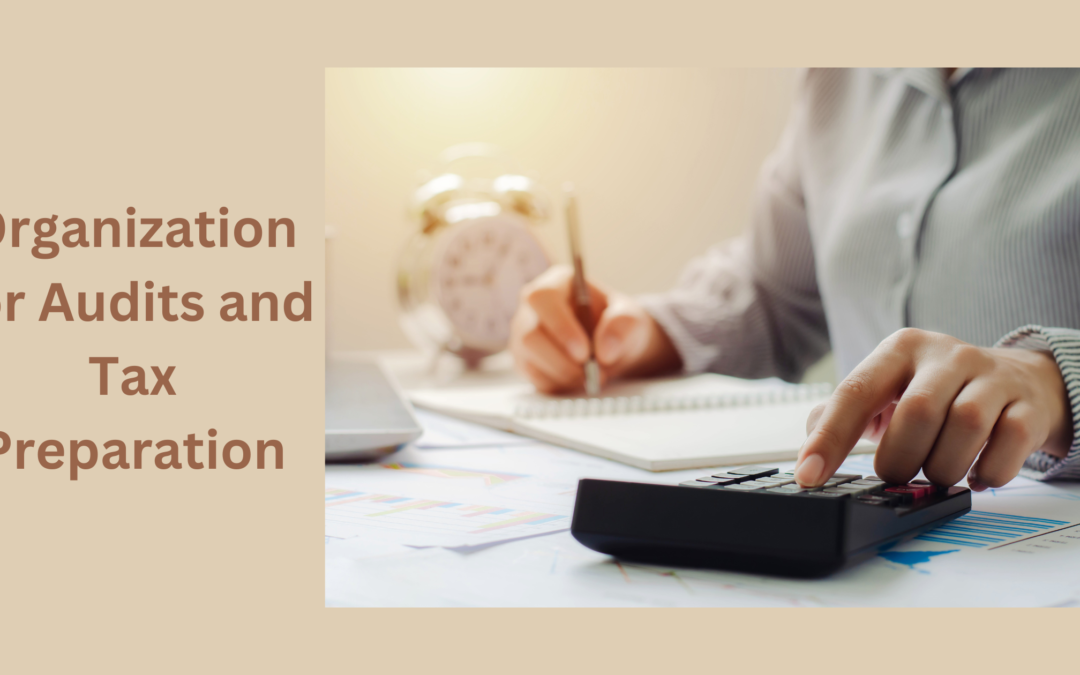The run-up to tax season can be one of the most stressful times of the year for a small- or medium-sized business. Receipts can be haphazardly thrown together (with only a reasonably high level of confidence as to relevance).
It seems a checking or credit card statement is always missing. Too often, everything gets entered into a spreadsheet and the original documents are stored in a file drawer or banker’s box, never to be looked at again. Too many business owners rarely follow up by thinking about taxes again until their next quarterly estimated payment is due, or maybe even until tax season returns the following year.
Be prepared
If your approach to tax time is haphazard, how can you be sure that your paperwork will be ready when tax time rolls around?
Worse, if the Internal Revenue Service selects you for an audit, would you be ready to defend the tax filing from prior periods?
One good way to prevent stress is to take time for an organization when there’s no deadline. Plan some time for organizing your tax documents for any possible audit. Or, if you plan to grow, make it easier to pass data along to the people handling your bookkeeping and taxes.
Preparation can alleviate stress while ensuring you’re complying with tax laws. And if you find an error before the IRS does in an audit, you can file an amended return.
Taking time to reorganize
Locate your old files and address them with the most recent year first. These are likely to be the most important and most relevant. Make sure you have your income statements, balance sheets and expense records. Compare what you have in your files (or box) to what you reported on the actual tax form.
You need proof of your expenses in the form of receipts, credit card statements and checking account statements so that the deductions you claimed can be validated. Your checking statements and invoices can be used to support your income. Some businesses may need additional documents, such as depreciation schedules or records of inventory.
If anything is missing that might be needed in an audit, now is the time to find it. A document management system makes it easy to search for items that may have been misfiled. If you’re missing a bank statement, download it from the online website or request a copy from your bank.
Store it better
Knowing where all your paperwork is located is certainly helpful. Digitizing documents and storing them in the cloud makes keeping and accessing items easy. It ensures that all relevant documents are in one place. It’s less likely that a document will go missing or be misplaced. You’ll reduce clutter and be able to access the data from anywhere. The IRS generally likes electronic documentation, too.
Once you’ve confirmed that you have all of a particular year’s data, set aside time to save it digitally in proper folders for the year. A good system will enable you to categorize your paperwork by type.
The future
While you’re moving backwards, remember how relevant this is to your future. If you don’t want to repeat this exercise, become better organized with your present documentation. Entering your receipts, invoices and bank transactions into your storage system on a regular basis will make your next tax season simpler.
Your tax accountant will be happier too, even if they bill you less. You’ll save time and reduce errors as well. And a cloud-based system means you can stick to any schedule you establish by making access possible from anywhere. Your bookkeepers and tax accountants can be enabled to work with your system as well.
Choosing the right option will provide you with a way to integrate with other commonly used business tools, such as accounting packages and spreadsheets, which can streamline workflows and increase efficiency.
Reviewing and organizing your past financial documents insures against potential disaster. Preparing for an audit that never comes is better than being unprepared for one that does. Having those records digitized and available for manipulation can even provide you with a chance to glean insight into the path you’ve taken. New awareness can lead to new inspiration and bigger success. All by getting your old documents in order.
If you need help with your bookkeeping or information storage, we can help! Reach out to us at 310-534-5577 or [email protected]
